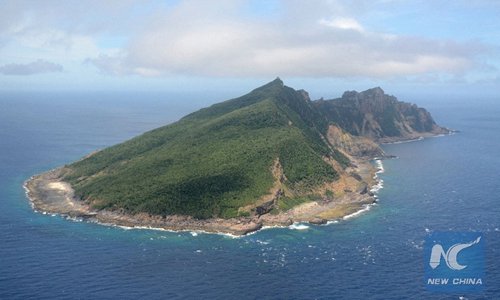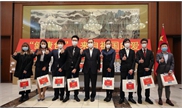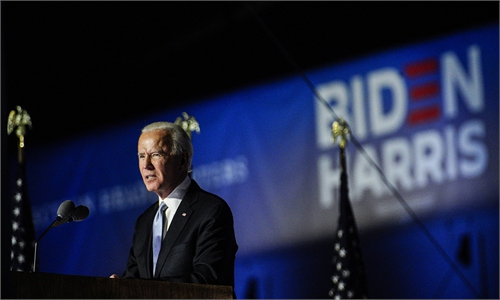Chinese Defense Minister reiterates China's stance on Diaoyu Islands during first video conference with Japanese counterpart Nobuo Kishi

File Photo: Xinhua
Chinese State Councilor and Defense Minister Wei Fenghe conducted a video conference with Japan's Defense Minister Nobuo Kishi on Monday, the first since Kishi assumed his post in September.
On the issues of the East China Sea and the Diaoyu Islands, Wei Fenghe pointed out that China is firmly determined to safeguard its territorial sovereignty and maritime rights and interests. Both sides should focus on the overall and long-term situation, strengthen consultations and properly handle differences, so as to truly make the East China Sea a sea of peace, cooperation and friendship, according to China's Defense Ministry.
Wei stressed that the two sides should maintain exchanges between high-level officials and conduct pragmatic cooperation.
The two sides also vowed to accelerate the establishment of a maritime and air liaison mechanism. Kishi said during the conference that Japan is willing to maintain communication with China, enhance exchanges over defense affairs and promote the construction of the air-sea liaison hotline to sustain regional peace and stability, according to the defense ministry.
Yang Bojiang, vice chief of the Institute of Japanese Studies at the Chinese Academy of Social Sciences, told the Global Times on Monday that China-Japan relations were on the track to improvement in 2017, but due to the pandemic that has hampered bilateral communications, there are some new issues emerging - negative movements from Japan over the East China Sea and the Diaoyu Islands disputes have increased.
In such a situation, pushing forward with the hotline will facilitate communication on disputes over the Diaoyu Islands, allowing for responses to be more timely and effective, Yang said, noting that it is also important to maintain the improving momentum of bilateral relations.
China and Japan initiated the maritime and air liaison mechanism in June 2018, to manage a potential crisis in the case of conflict between the two sides' marines and pilots.
The Global Times learned that the two sides still need to negotiate over certain technical issues regarding the diplomatic hotline.
Zhou Yongsheng, a professor at China Foreign Affairs University, told the Global Times that Japanese Prime Minister Yoshihide Suga's China policy continues the strategy of his predecessor Shinzo Abe, depending on China economically and expecting close relations in the realm while following the US in security, politics and military matters to contain China's development.
Since confrontations between China and the US are likely to ease after Joe Biden takes office, China-Japan relations are also expected to improve, which provides favorable conditions for the set-up of a hotline, Zhou said.
Although China-US relations face new challenges this year, it is noticeable that Japanese officials at different levels emphasize the importance of Japan's relationship with China. Kishi in his phone call with Wei expressed Japan's belief in the importance of keeping stable development in its relationship with China and related defense communication amid the pandemic.
Yang noted that Suga had also emphasized stable development of Japan's relations with China in his first policy address on October 26. He made similar remarks multiple times later.


